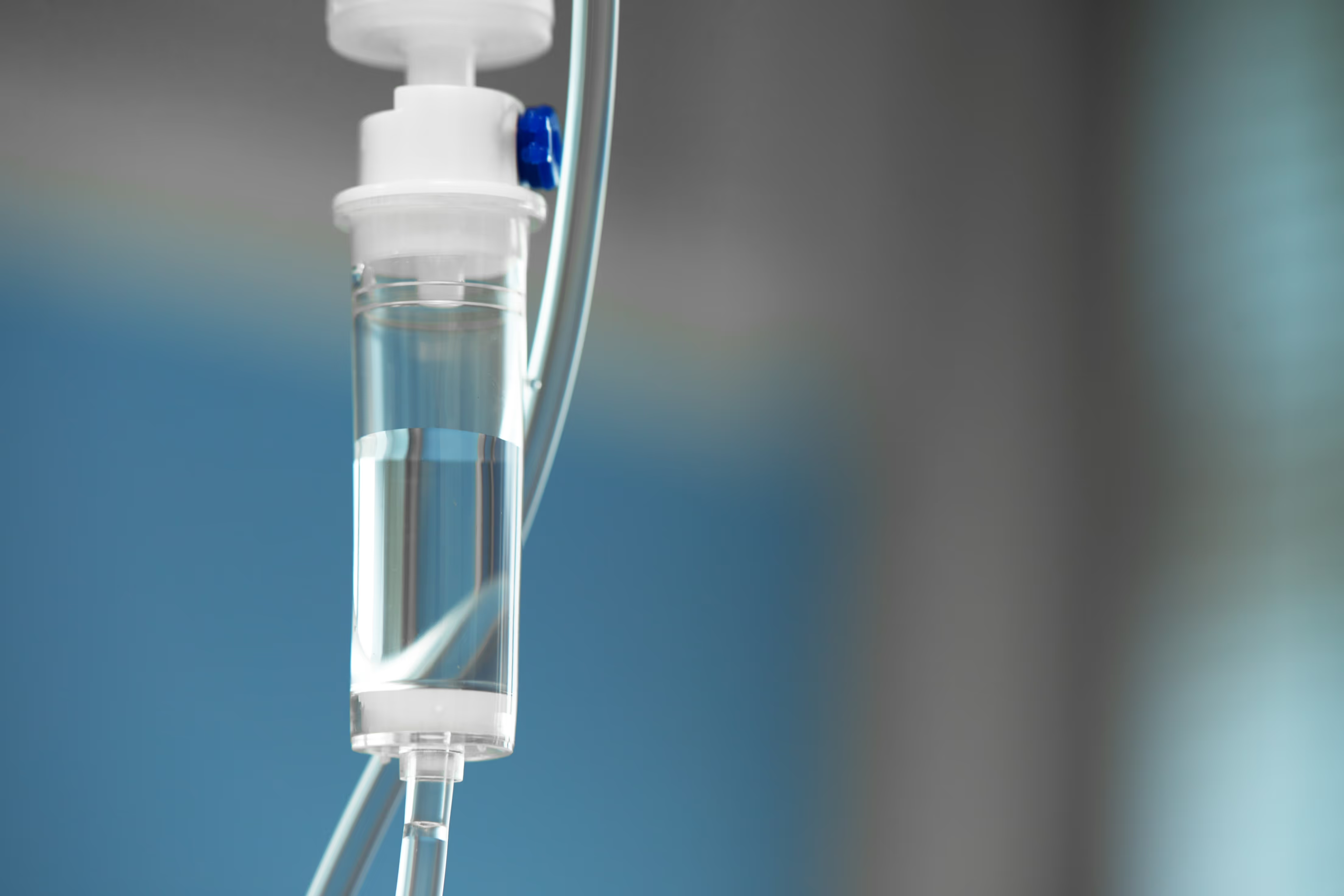IV Therapy vs Oral Supplements: Pros, Cons, and When to Choose Each
Tired of taking vitamins that don’t seem to do much? You’re not alone. With IV therapy promising faster results and better absorption, many wellness seekers are rethinking their supplement routine. But is it really worth the needle or just overpriced hype? Let’s break it down.
New to IV therapy? Start with our Beginner’s Guide to IV Therapy for an easy-to-understand introduction before diving deeper.

When it comes to getting extra vitamins and nutrients, you might wonder whether IV nutrient therapy or traditional oral supplements offer more benefits. Both methods can deliver vitamins and minerals to your body, but they work in very different ways.
IV therapy infuses nutrients directly into your bloodstream through an intravenous drip, whereas oral supplements are taken by mouth and absorbed through the digestive system. Understanding the differences in absorption, how quickly they work, convenience, efficacy, and cost will help you decide which approach fits your health needs.
Below, we break down key comparison points of IV therapy versus oral supplements to help you make an informed choice.
Absorption and Bioavailability
One major difference between IV drips and pills is how well your body absorbs the nutrients. IV therapy bypasses the digestive system entirely, allowing a near 100% absorption (100% bioavailability) of vitamins to enter your bloodstream. Because nutrients go directly to your veins, your body can use them fully without losses.
In contrast, oral supplements must pass through your stomach and intestines, which feed directly into your liver before being distributed to the rest of the body. This is called "first-pass metabolism". During this process, a large portion of the nutrient dose is broken down or not absorbed, so your body only uptakes a fraction of what you ingest.
In short, IV therapy offers much highers bioavailability than oral supplements.
Speed and Onset of Effects
Nutrients delivered by IV enter your bloodstream almost immediately, so effects can often be felt the same day.
In contrast, oral supplements work more slowly. After swallowing a vitamin pill, it can take a few hours to digest and absorb, and you usually need days or weeks of consistent use to notice significant benefits.
If you need an instant boost, IV therapy is the fast option, though for steady improvement and maintenance, oral supplements is the more convenient and cost-effective approach.

Convenience and Comfort
For daily use, oral supplements have a clear advantage.
They take a few seconds, no special equipment or medical oversight is needed, and oral vitamins are widely available over the counter. They can be taken anywhere, are non-invasive, and nearly 100% guaranteed to be safe. You also don't have to be poked by a needle. For every day use, oral supplements take the win.
IV therapy is less convenient, and more costly. Needles can be uncomfortable, and can leave a small bruise or irritation at the injection site. While 30-40 minutes may not be a long time for most, it is still more cumbersome to fit in your schedule than taking a pill.
Efficacy for Wellness and Deficiencies
Both IV therapy and oral supplements can support your health, but their effectiveness may depend on your situation.
If you have a specific vitamin or mineral deficiency, or a condition that makes nutrient absorption difficult, IV therapy can be a very effective remedy. It delivers high doses directly into your system, which can quickly correct deficiencies or provide a notable boost.
Certain conditions, like a B12 deficiency, simply can't afford the luxury of waiting for an oral supplement to take effect because the damage can be permanent and every hour counts. In addition, IV vitamin C can achieve blood levels far higher than oral vitamin C, which can be useful in certain therapeutic situations. IV drips are also beneficial for people who can’t absorb nutrients well through their gut (due to digestive disorders or surgery).
There are situations where IV therapy is the obvious choice. Think hangovers, food poisoning, NAD+ infusions, or Glutathione for detox or skin health. In those cases, pills can’t compete. You need rapid absorption, high potency, and targeted delivery. If you are too nauseous to even ingest a pill with water, of course you can't take pills. NAD+ and Glutathione oral supplements are also ineffective since they are broken down in the gut, before they ever reach the bloodstream. In these certain cases, IV therapy takes the win.
For everyday general wellness, however, oral supplements are usually sufficient if taken properly. A daily multivitamin or other supplement can effectively maintain your nutrient levels and help prevent minor deficiencies over time. For generally healthy individuals, taking supplements regularly (along with a balanced diet) can keep your vitamin and mineral levels in the optimal range.
Think of IV therapy as a targeted boost or a quick fix for special cases, whereas oral supplements are the go-to for ongoing nutritional support.
Cost Comparison
Cost is an important factor when comparing these two options.
IV nutrient therapy tends to be much more expensive than oral supplementation. A single IV vitamin drip session can cost roughly $100 to $300 on average, depending on the type of infusion and the clinic’s pricing. Specialized or high-dose IV treatments may cost even more (sometimes up to $500 per session).
Wellness IV drips are usually not covered by insurance, so you would be paying out of pocket.
By contrast, oral supplements are relatively inexpensive. A bottle of basic multivitamins might cost $10–$30 and last one to two months. Even high-quality or specialty supplements typically cost under $100 for a monthly supply.
Over the long run, maintaining a daily supplement regimen is far more budget-friendly than getting regular IV infusions. Also consider the time aspect taking a pill at home is free and fast, whereas an IV session requires an appointment. From a cost perspective, pills are the economical choice for most people, while IV therapy is a larger investment for a more intensive treatment.
When to Choose IV Therapy vs. Oral Supplements
So, which option is right for you? The decision depends on your personal health goals and circumstances. Here are some general guidelines on when you might opt for IV therapy and when oral supplements make more sense:
IV therapy may be better for: Situations like severe dehydration (hangover, vomiting), recovering from illness or intense exertion (food poisoning, migraine), or quickly correcting a significant nutrient deficiency. It’s also useful if you have digestive issues that prevent proper nutrient absorption. Certain supplements are much more effective through IV form like NAD+ and Glutathione.
Oral supplements may be better for: Everyday maintenance of health and preventing minor deficiencies over the long term. They are sufficient for most people’s daily needs and ideal if you want to avoid needles or clinical procedures.
.svg)
Regardless of which method you choose, it’s wise to consult a healthcare professional first. They can pinpoint your nutrient needs and help you choose the safest, most effective option for you.
Pros and Cons Summary
To recap, here is a quick comparison of the pros and cons of IV therapy versus oral supplements:
IV Therapy – Pros
- Nearly 100% absorption and immediate utilization of nutrients
- fast-acting results that can often be felt the same day
- can be customized with specific nutrient formulas to target your needs (for example, immunity boosts or athletic recovery)
- very effective for people with absorption issues or those who need rapid nutrient replenishment
IV Therapy – Cons
- Requires an intravenous needle, which some people find uncomfortable, and carries a minor risk of infection or vein irritation.
- High cost per treatment (often a few hundred dollars) and typically not covered by insurance for wellness uses.
- Less convenient for frequent use, since each session takes time and must be done at a clinic or by a professional.
Oral Supplements – Pros
- Highly convenient and easy to incorporate into a daily routine.
- Widely available in many varieties (vitamins, minerals, herbs, etc.) to suit different needs.
- Affordable for long-term use (usually only tens of dollars per month).
- Great for maintaining overall health and preventing common nutrient deficiencies when taken regularly.
- Non-invasive and generally very safe when used as directed.
Oral Supplements – Cons
- Limited absorption due to digestion, so you may not get the full dose into your system.
- Some supplements can cause stomach upset or interact with medications if misused.
- Slower onset – it can take weeks of consistent use to notice benefits.
- Quality can vary by brand, so effectiveness might differ between products.
Conclusion
Now that you’re informed about IV therapy versus oral supplements, you can decide what best supports your health.
If you’re interested in trying an IV vitamin drip or want guidance with your supplement plan, we’re here to help.
FAQs
IV therapy is more effective in terms of absorption and speed. It delivers nutrients directly into the bloodstream, bypassing the digestive system and achieving nearly 100% bioavailability. Oral supplements lose potency during digestion, with only a fraction of the dose actually absorbed.
Faster results: Nutrients take effect quickly since they're delivered directly into the bloodstream. Higher absorption: IV bypasses the gut, so you get nearly full bioavailability. Better for certain conditions: Ideal for people with malabsorption issues, GI problems, or when high doses are needed fast (e.g. dehydration, migraines, NAD+ therapy). Customizable: IV blends can be tailored to your specific health needs.
Invasive: Requires a needle and sterile technique. Time-consuming: Sessions take 30–60 minutes. Costly: Much more expensive than over-the-counter supplements. Risks: Minor complications like bruising, vein irritation, or in rare cases, infection.
Not completely. IV therapy is useful for targeted support, rapid correction, or enhanced wellness, but it’s not meant to replace the convenience and routine function of daily oral supplements. IV should be viewed as a complement.
Costs vary depending on the provider and the formulation. In NYC, mobile IV therapy generally ranges from $200 to $500 per session. Add-ons like NAD+, glutathione, or extra vitamins can increase the total price.


.svg)




